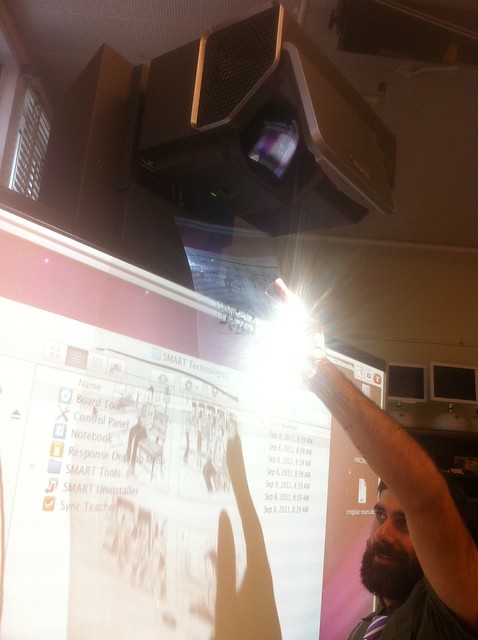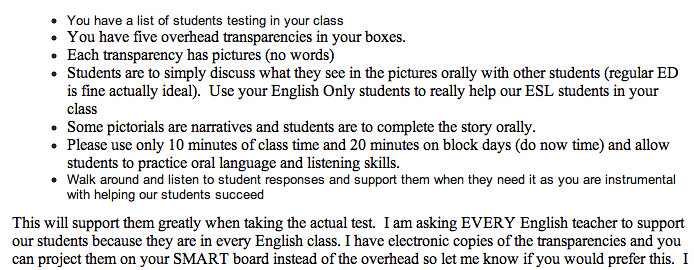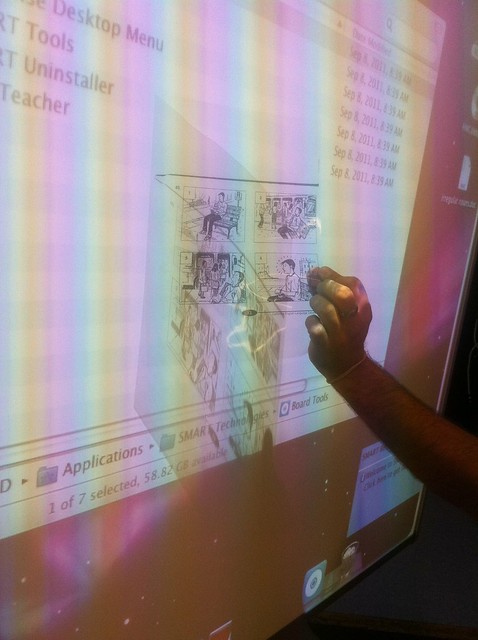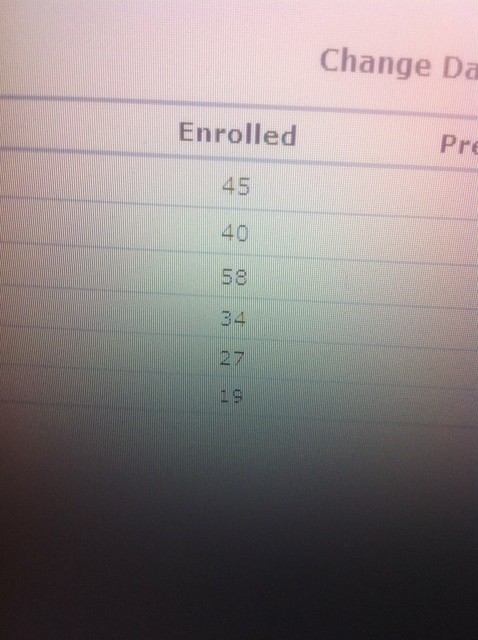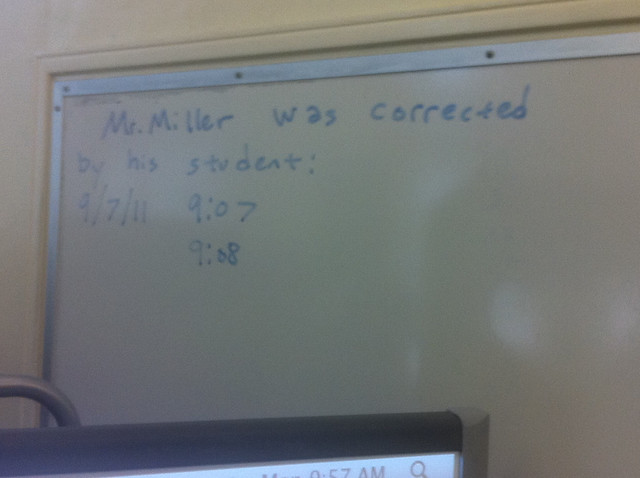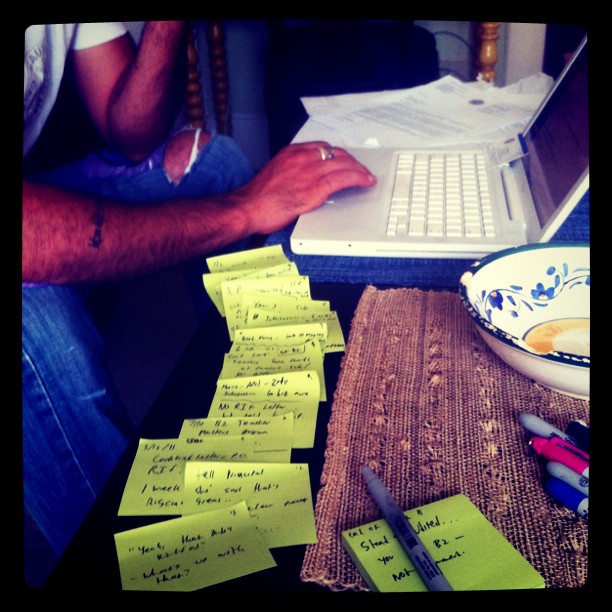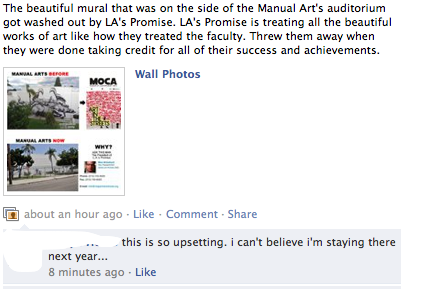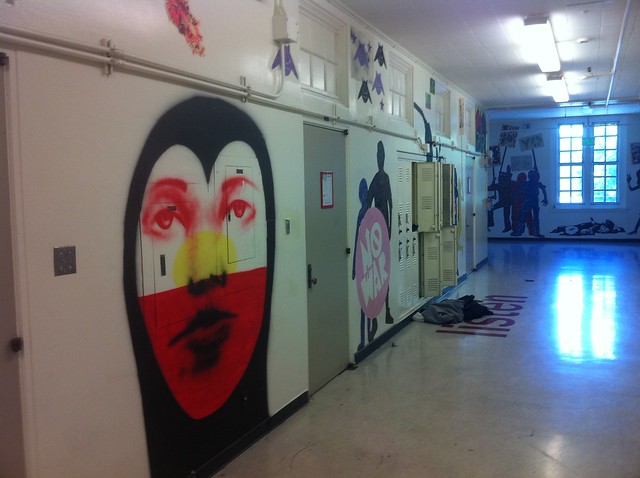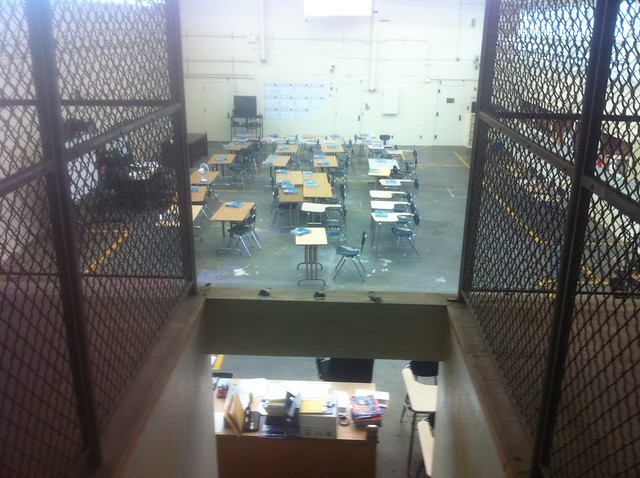
In an effort to get all of the students to fit on campus, my school has converted our former woodshop into two different classrooms: a biology and a history class. Originally, one teacher was supposed to teach upstairs and one downstairs.

Both teachers agreed that the second floor alcoves felt too prison-like to actually conduct classes in.

I think these forgotten materials are pretty much all that’s left of the woodshop classes. So much for shop class as soulcraft.
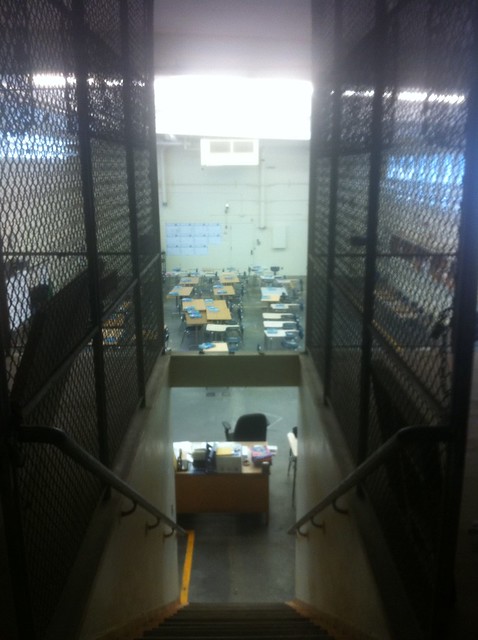
Here’s the view from the top of the stairs walking into the main classroom space – you can see the history teacher’s desk at the bottom of the stairs and the biology teacher’s student desks in the background.

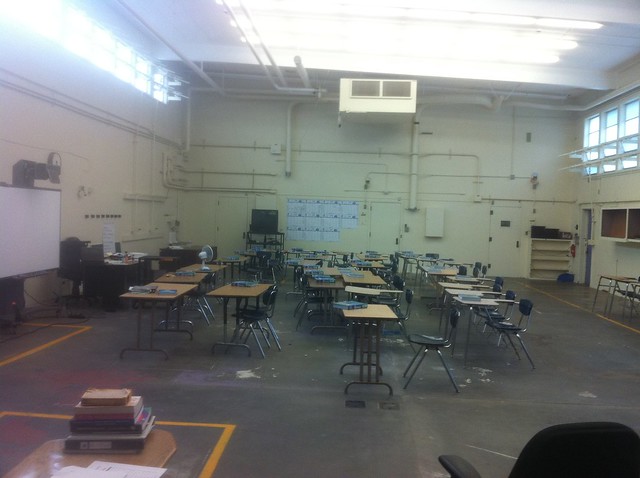
The high ceilings, walls lined with wires, and mysterious HVAC unit on the ceiling make it a little difficult to decorate and personalize the space. I imagine it’s got to feel like taking a class in an abandoned Costco.
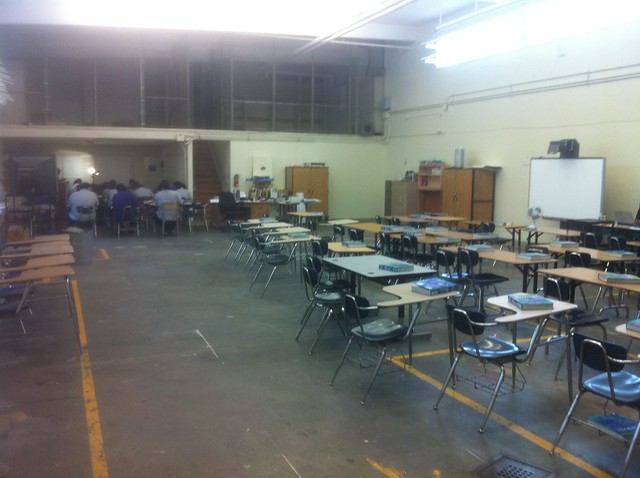
That’s the history class in the small corner – they had to make use of the small space to offset the noise when both classes are in session.
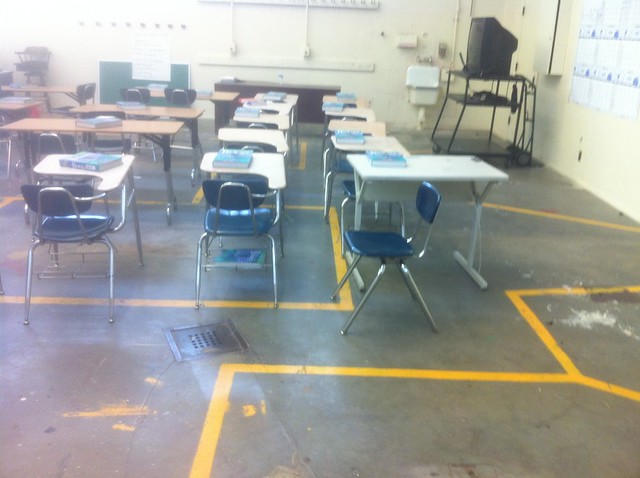
I find the yellow lines left from the woodshop class fascinating. If I were a student here, I know they would be endlessly distracting to me.
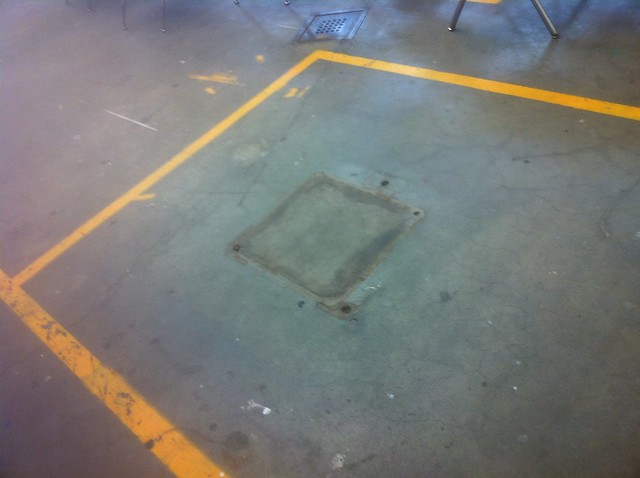
I want to conclude this tour by briefly addressing the way that Manual Arts has been discussed in public lately. As much as I feel like I helped accurately represent the teacher concerns at school in Saturday’s column, today’s follow up column by Sandy Banks is disappointing in how little it actually says.
I’m also disappointed in Mike McGalliard’s response to all of this. While I’ve heard from many incensed teachers about the lack of respect and navel gazing that he accomplished, I don’t want to waste energy pointing fingers, sniping about details of what’s happened at the school, etc. However, I want to address being called a “whiny” teacher.
[First of all, really? Is this really what Mike is bringing our level of discourse down to? Really?]
When classroom conditions are clearly beyond what is equitable and are now a civil rights issue, I think it’s time to make sure you are whining in public. 22 extra days won’t do anything when teachers cannot work within an environment. I see the critical lens I am trying to shape on this blog as a way of advocating for a profession that is continually portrayed as “whiny” and the perpetuation of the label by the former head of an organization that teachers brought on campus via a grassroots campaign is saddening.
It all makes me wonder if Mike and the people that “want to see the needle move” ever feel like there is an okay time for teachers to whine?
Should my colleague that has had a leak in front of her classroom with overflowing buckets sit idly? (The leak’s been their since May.)
Should the students be wondering why we don’t have a librarian?
The students that haven’t gotten lunch because they don’t know where the line is for students without meal tickets and haven’t gotten the applications be allowed to whine?
Can I whine that I’m given overhead projector transparencies as an instructional aid even though we’ve spent hundreds of thousands on smart boards?
What about the signficant number of teachers still subbing for themselves?
You see, it’s not that any one of these is a dire problem in-and-of-itself, necessarily. However, when these different challenges (and the many, many more that have arisen this year) are compounded, they create a pretty dismal learning experience for students and a soul-deadening outlook on work for even the most leveled teachers. If Mike’s hoping to lead with the dollars of “corporate America,” maybe he should also think through his own recognition that he should be listening to why I am whining and for whom I am advocating.
Tell people this is awesome:
